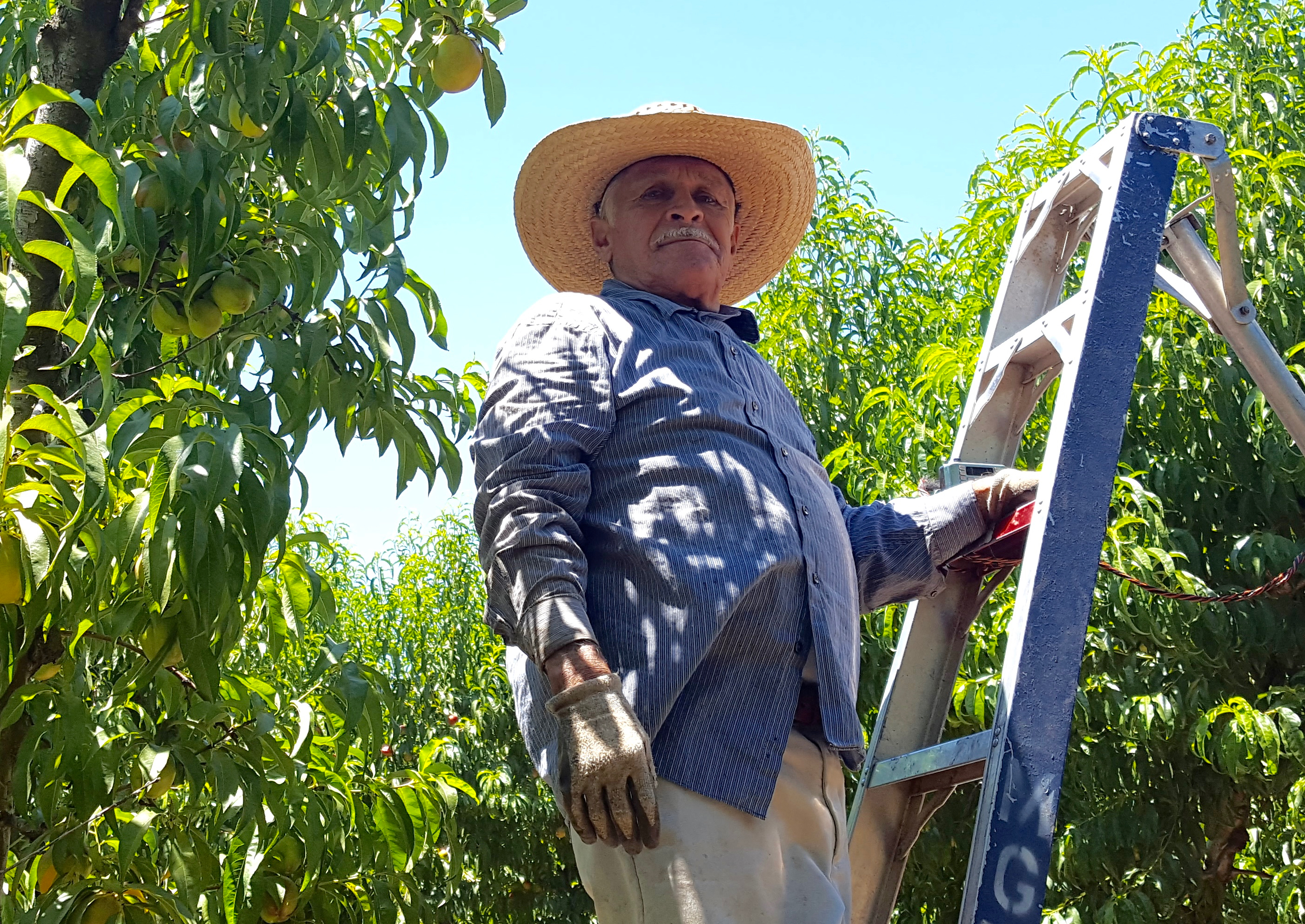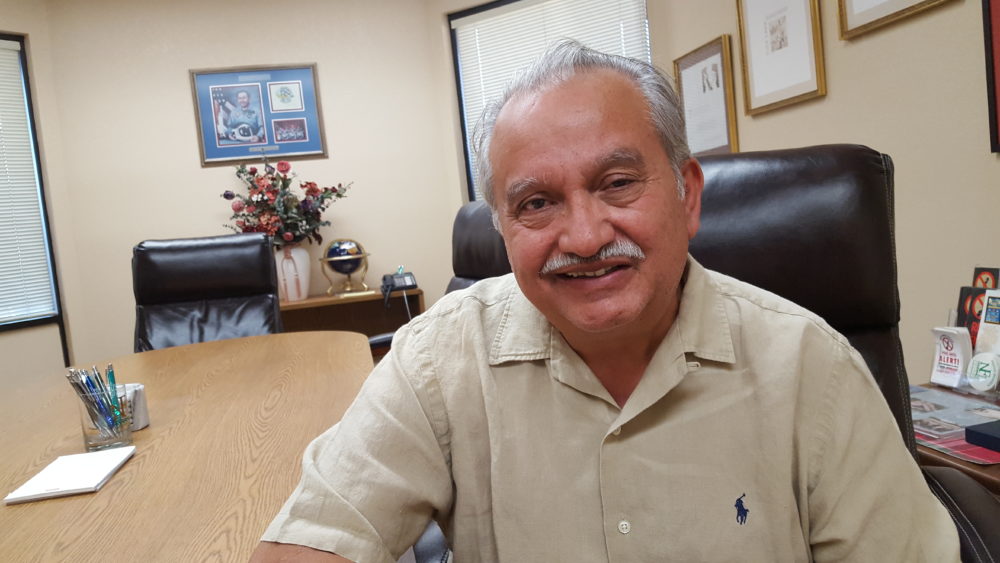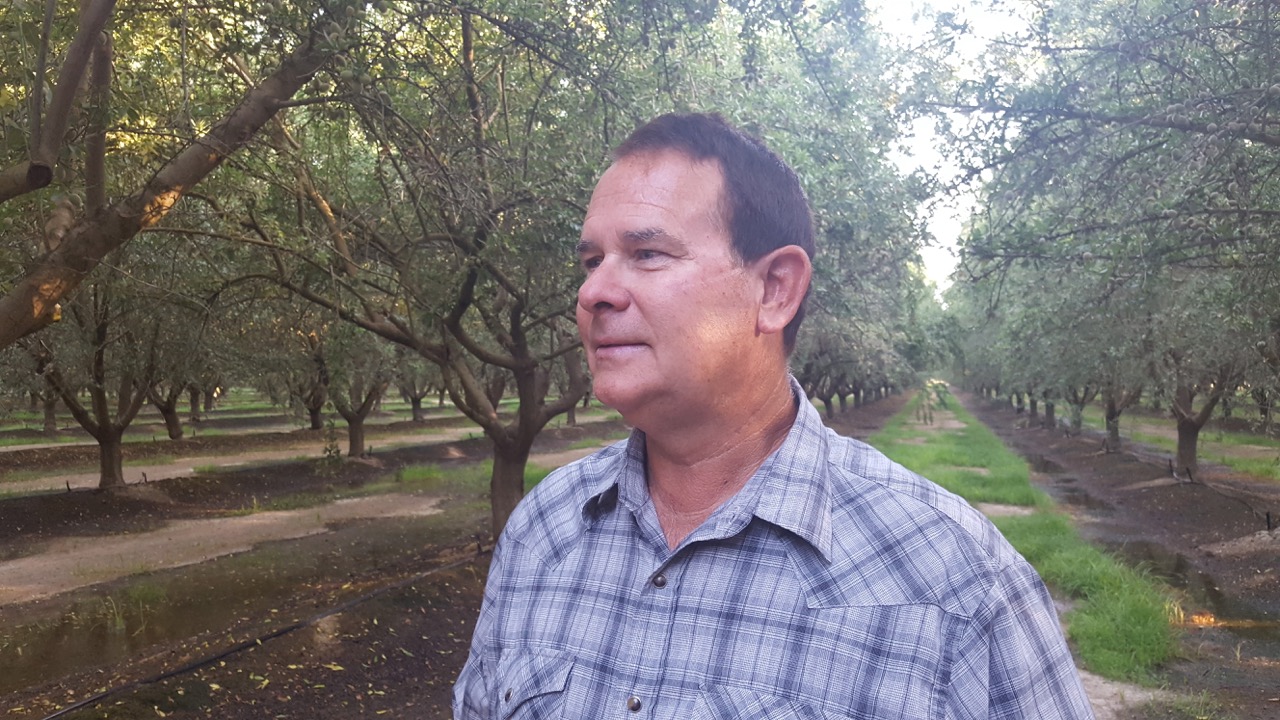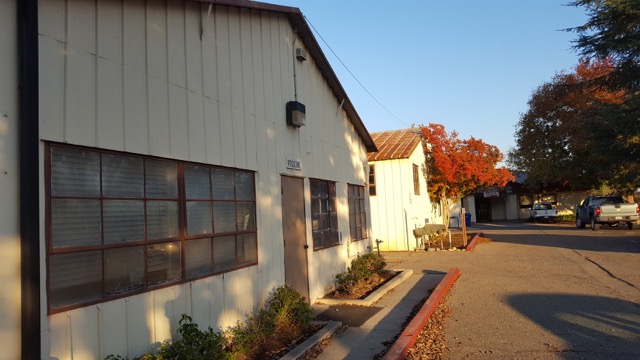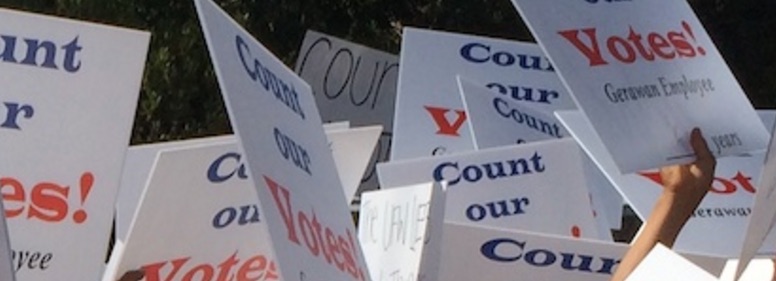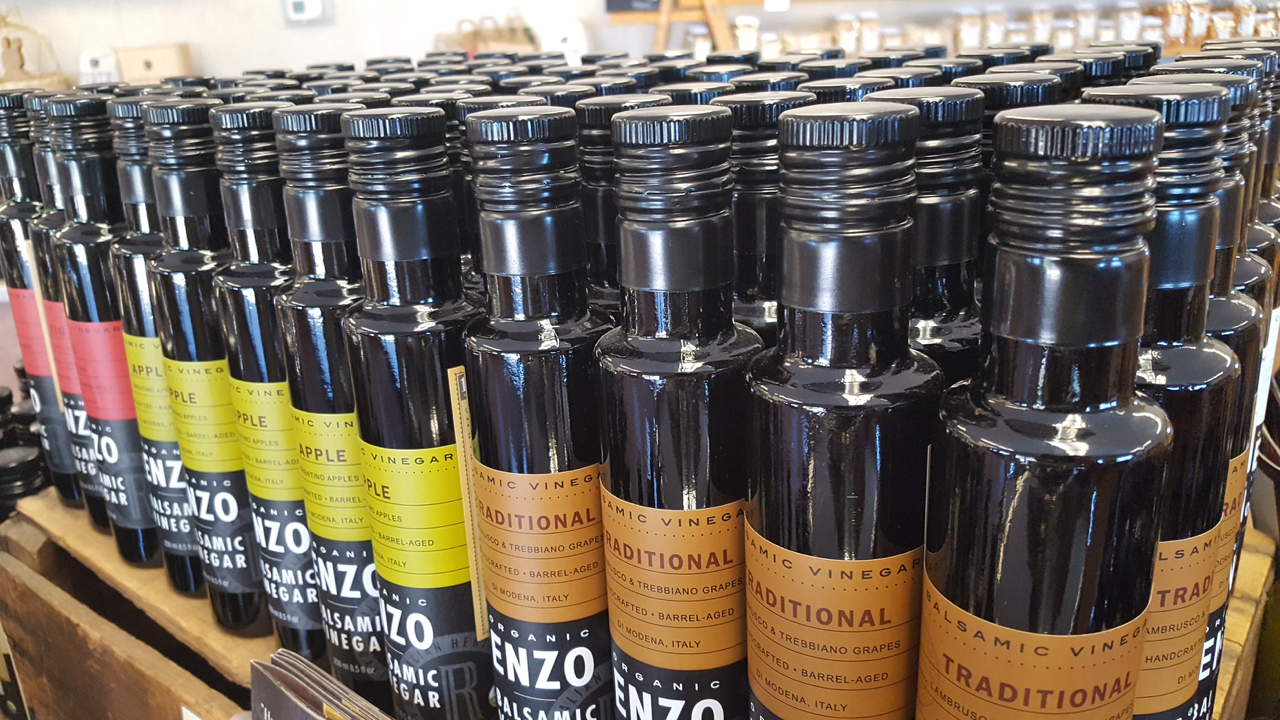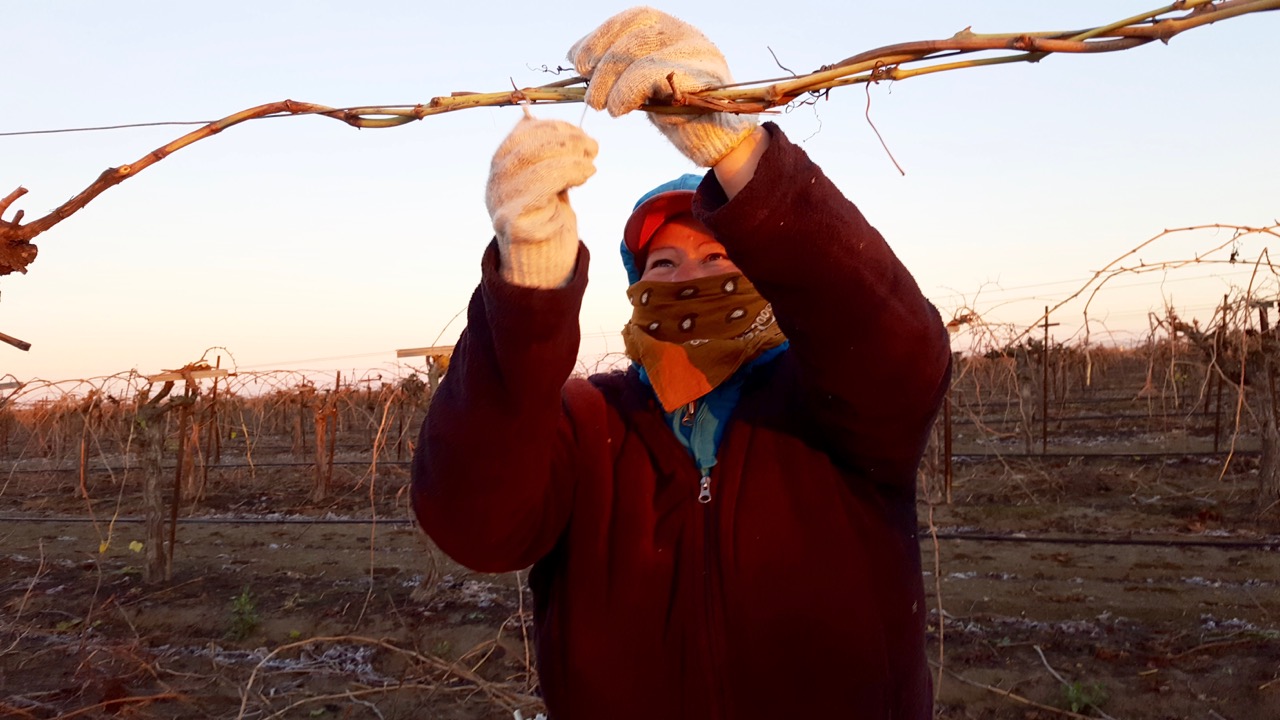Who Safeguards CA Farm Workers’ Rights? # 7 – CA Supreme Court
CA Supreme Court Hears Case of Gerawan Farming, Inc. vs. UFW/ ALRB
By Laurie Greene, Founding Editor

Gerawan Farm Workers Show Company IDs and Paystubs (Identification has been blurred out for privacy reasons.)
A significant labor hearing occurred at the California Supreme Court (Court) in San Francisco yesterday, the day after Labor Day, between the team of the United Farm Workers (UFW) and the California Agricultural Labor Relations Board (ALRB or Board) versus Fresno County-based Gerawan Farming, Inc. over self-determination. At stake is the right of farm workers to determine if they want to be represented by the union or not. Under scrutiny is the Mandatory Mediation and Conciliation (MMC) provision of the Agricultural Labor Relations Act that paves the road for the UFW to force unionization on all farm workers.

Anthony Raimondo, of Fresno-based Raimondo & Associates, lawyer for Gerawan farm worker spokesperson, Silvia Lopez
“Although Gerawan farm workers attempted to participate in this hearing, as well as other hearings, they were denied legal participation in the trial by the state of California and by the UFW,” according to Anthony Raimondo, of Fresno-based Raimondo & Associates and lawyer for Gerawan farm worker spokesperson, Silvia Lopez. Nevertheless, hundreds of Gerawan employees in blue t-shirts attended the proceedings and protested outside the courthouse, lending their voices, exercising their free speech and showing their legitimate Gerawan company ID cards and payroll stubs.
Dan Gerawan, who co-owns Gerawan Farming, Inc., with his brother Mike and father Ray, commented on the court hearing just after it ended. “It is frightening to see the deference that the Court gives to the ALRB. Everyone in our industry and all farm workers should be scared by the deference this Court gives to a Board that is clearly not interested in the employees’ best interests.” Describing his perceptions in the courtroom, Gerawan said, “It was Orwellian to hear the government attorneys argue that they are defending self-determination, when in fact, what they are doing is the exact opposite.”
“That said,” he continued, “I am encouraged by the questions I heard from the Court. They obviously are taking this very seriously, and I’m hopeful that they will side with our employees and us.”
Members of the UFW were also present at the Court in red t-shirts, though only one person claimed to be a Gerawan employee. Marc Grossman, spokesperson for the United Farm Workers of America and communications director of the Cesar Chavez Foundation, said that the Gerawan operation should be unionized because the UFW was elected in 1990 by Gerawan farm workers and certified in 1992 by the ALRB.
However, the UFW did not successfully reach a contract for the Gerawan farm workers, and therefore did not collect dues. Furthermore, the UFW abandoned the Gerawan farm workers for nearly 20 years.
Grossman said the Court discussed today the long-standing principle that a union is certified until it is decertified. Workers have a right to decertify the union but it has to be the workers—not the company. It is patently illegal for an employer to have anything to do with determining union representation by his or her employees.
When asked to account for UFW abandonment of Gerawan farm workers, Grossman said, “Bogus issue! The UFW never abandoned the workers at Gerawan. It repeatedly attempted to negotiate with Gerawan. At every step, it was met with virulent resistance by the company. It became apparent that only a law that would allow neutral state mediators to be brought in to hammer out a union agreement when the grower refused to do so would be the only course, and we followed it.”
Grossman asked us to read the September 5 ‘News from UFW’ press release he provided, entitled, “Giant grower challenging law giving farm workers the union contracts they voted for already owes its workers $10 million under a state-imposed union contract.” Here are excerpts:
What about Gerawan’s claim the union “abandoned” the workers for 20 years?
Even before the Mandatory Mediation statute was adopted in 2002, the ALRB and the courts consistently rejected employer claims that unions should not be deemed workers’ bargaining representatives if they allegedly “abandoned” them. It is long-established law that a union remains certified as bargaining representative until workers—and only workers—vote to decertify it. At the time of the law’s passage in 2002, Gerawan was one of the 243 companies where farm workers voted for the UFW but the companies never agreed to contracts. (See UFW-Gerawan chronology)
1995-2002: Gerawan workers and the UFW continued working to improve conditions while the ALRB stopped enforcing the farm labor law under Republican political appointees.
2002: The Mandatory Media law was enacted. The agricultural industry mounted a major constitutional challenge.
2006: The Third District Court of Appeals in Sacramento upheld the Mandatory Mediation law. The industry appealed to the state Supreme Court, which refused to take the case. The industry declined an appeal to the U.S. Supreme Court—and the law’s constitutionality was settled.
2012: The UFW sent a new negotiations request to Gerawan. At least 10 bargaining sessions failed to produce a union contract.
March 2013: The UFW requested mandatory mediation at Gerawan with the ALRB.
The above chronology vaguely refers to UFW involvement between 1995 and 2002 that remains unsubstantiated. UFW contact with Gerawan farm workers appears to have been reestablished in 2012.
The ALRB did supervise a sanctioned election for Gerawan farm workers to decertify the UFW on November 5, 2013; however, the ballots were collected, sealed and never counted.
When told that UFW representative Grossman said they never walked away, Gerawan asked, “If they didn’t abandon, then where were they for almost two decades? They did not phone us or send us a fax. They did not show up on our property. They did not inquire on behalf any of our employees. They did not file an unfair labor practice. They did nothing during that time. They abandoned our employees.”
One of Gerawan’s attorneys, Ron Barsamian, managing shareholder of Fresno-based Barsamian & Moody, stated, “I’m very encouraged. I think the Justices’ questions indicated that they understood the issue we were raising. I think they certainly read the briefs. I think they understand the difficulty in how locked-in workers, such as the [Gerawan] ones behind us, can be under the way this law works: if you have an MMC contract, [the workers] never have an opportunity to decertify the union. Even the questions asked by the justices that we expected to be against us were great, and I certainly loved the answers that Mr. Schwartz gave.”
Barsamian was referring to another Gerawan attorney, David Schwarz, from the law firm, Irell & Manella, who addressed the central issues of the case: “I think it was a full and fair hearing. I think the Court—all members—are deeply concerned about the unaccounted for two-decade [UFW] absence, an unaccountable power given to a mediator [ALRB], and uncheckable power given to the union [UFW] to compel one grower and one group of employees into this process. Ultimately, I think the justices were very much focused on and troubled by the inability of the [ALRB] agency to step in in a situation of gross abandonment where a contract is being imposed by that agency.”
The California Supreme Court typically releases it decisions and commentaries after 90 days.
Who Safeguards Farm Worker Rights? – Part 8
Pick Justice, Gerawan Farm Workers Protest Forced Unionization















